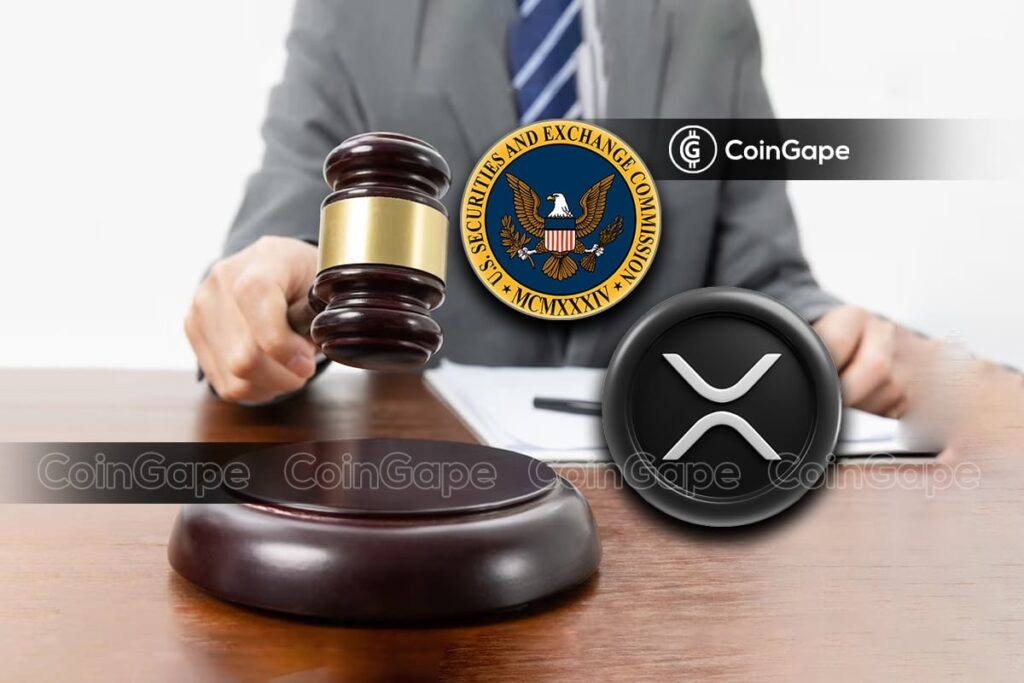Pro-XRP lawyer Bill Morgan sheds light on the potential roadblocks looming for Ripple amid its legal battle with the SEC. Morgan expressed dismay at the SEC's stance in his recent statements, suggesting it could spell trouble for Ripple's future.
Next steps in the Ripple vs. SEC case
Morgan pointed out that the SEC's claims were directed at Ripple's selective discounting to institutional investors, which may have harmed those who did not receive the discount. Amid the Ripple vs. SEC case, the latest regulatory report puts the damage at $480 million. Therefore, Morgan warned that this move could create “problems” for Ripple in future litigation.
On the contrary, lawyers argued that the assumptions behind this figure required thorough scrutiny. “The evidence for a causal relationship in this alleged harm appears to be weak,” Morgan said, stressing the need for further scrutiny of the SEC's claims. Additionally, the SEC claimed that these discounted sales were exerting downward pressure on the market price of XRP.
This could expose the company to legal action from aggrieved institutional investors amid the Ripple v. SEC lawsuit. Mr. Morgan emphasized the gravity of the situation, saying, “The SEC's claims in the brief and the evidence supporting those claims must at least allow for the risk of litigation against Ripple.''
Morgan also expressed concern about the impact on Ripple's reputation among institutional investors. He feared that the selective discounting revelations could damage the company's image. Furthermore, the SEC's classification of these sales as investment contracts suggests that disclosure of such discounts would have been required had the sales been registered.
Therefore, questions arise about Ripple's compliance with regulatory standards. Morgan made it clear that he intends to dig deeper into the issue before addressing these issues directly, alluding to flaws in the SEC's arguments.
Comment from Fred Rispoli
Another XRP lawyer, Fred Rispoli’s analysis of the latest motions in the Ripple-SEC case shocked the crypto community. Mr. Rispoli highlighted the SEC's challenge of proving actual harm to investors, and emphasized that this is a critical aspect that could sway the court's decision. Additionally, Ripple and its CLO Stuart Alderotti have deemed the SEC's claims to be misinterpreted, highlighting the controversial nature of the proceedings.
However, he expressed concern over revelations surrounding alleged deep discounts on XRP sales, saying this could reduce investor confidence and lead to a decline in the value of the cryptocurrency. An anonymous number on page 18 of the motion suggests the magnitude of these discounts. This raises questions about the implications for institutional investors like GSR.
Rispoli's analysis also takes a closer look at Ripple's post-indictment and post-summary judgment XRP sales, which the SEC claims are the company's primary source of revenue. Despite this claim, Ripple's continued engagement with institutional investors suggests it is resilient amidst the legal turmoil.
The significance of this motion extends beyond financial issues, as it determines the legality of Ripple's on-demand liquidity (ODL) practices. Ripple's XRP holdings exceed the previous estimate of 45.77 billion, and the stakes are higher than ever.
ALSO READ: BREAKING: SEC asks Judge Torres for final ruling in Ripple XRP case
SEC Appeal Against Judge Torres
In its latest brief in the Ripple v. SEC case, Ripple has pointed out to the federal court that Ripple has violated securities laws. urged the judge to approve the final judgment against Ripple. As CoinGape previously reported, the requested actions include a permanent injunction, disgorgement with prejudgment interest, and civil penalties amounting to nearly $2 billion.
Ripple executives and members of the crypto community have criticized the SEC for what they consider to be unsubstantiated claims in the bailout brief and other related documents. They argued that the lack of allegations of fraud or recklessness suggests a punitive attitude toward Ripple. This represents a strategy to disrupt the ongoing bull market.
The SEC filed a public version of its amended relief brief with the court. Its principal allegation is an alleged violation of Section 5 of the Securities Act of 1933. These violations relate to his unregistered XRP sales in institutional sales. Notably, the SEC's stance is to refrain from alleging fraud, instead targeting Ripple's expansion despite ongoing litigation.
In its appeal to Judge Annalisa Torres, the SEC is seeking approval of an order requiring Ripple to spend $876,308,712. It also seeks $198,150,940 in prejudgment interest and imposes a civil penalty of $876,308,712.
The SEC argued that Ripple's post-indictment sales of XRP were primarily to institutional investors, and that these transactions were having a negative impact on investors. Additionally, the SEC charged Ripple with persistent violations of securities laws, misrepresentation of court decisions, and willful avoidance of compliance.
Also Read: XRP Lawsuit: Ripple CLO Blames SEC’s $2 Billion Fine Soon to Be Revealed


